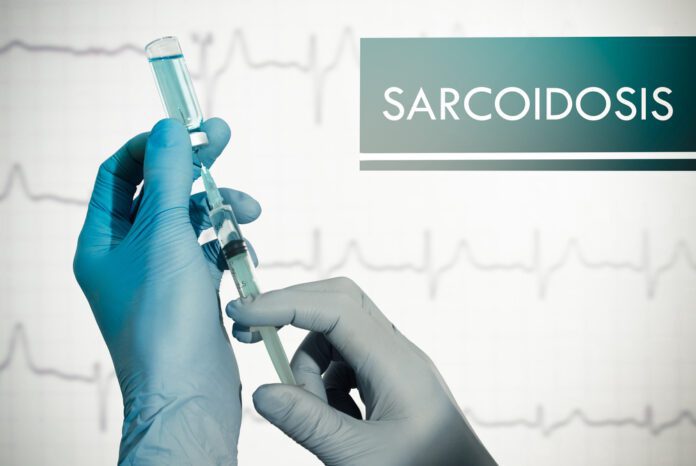Overview Of Sarcoid Of Boeck
Sarcoid Of Boeck is synonymous with the term Sarcoidosis. Sarcoidosis is a disease in which inflammation occurs in the lymph nodes, lungs, liver, eyes, skin, and/or other tissues.
Commonly Associated With
Sarcoidosis
Causes Of Sarcoid Of Boeck
The exact cause of sarcoidosis is unknown. What is known is that when a person has the disease, tiny clumps of abnormal tissue (granulomas) form in certain organs of the body. Granulomas are clusters of immune cells.
The disease can affect almost any organ. It most commonly affects the lungs.
Doctors think that having certain genes makes it more likely for a person to develop sarcoidosis. Things that may trigger the disease include infections with bacteria or viruses. Contact with dust or chemicals may also be triggers.
The disease is more common in African Americans and white people of Scandinavian heritage. More women than men have the disease.
The disease often begins between ages 20 and 40. Sarcoidosis is rare in young children.
A person with a close blood relative who has sarcoidosis is nearly 5 times as likely to develop the condition.
Symptoms Of Sarcoid Of Boeck
There may be no symptoms. When symptoms do occur, they can involve almost any body part or organ system.
Almost all people affected by sarcoidosis have lung or chest symptoms:
- Chest pain (most often behind the breast bone)
- Dry cough
- Shortness of breath
- Coughing up blood (rare, but serious)
Symptoms of general discomfort may include:
- Fatigue
- Fever
- Joint ache or pain (arthralgia)
- Weight loss
Skin symptoms may include:
- Hair loss
- Raised, red, firm skin sores (erythema nodosum), almost always on the front part of the lower legs
- Rash
- Scars that become raised or inflamed
Nervous system symptoms may include:
- Headache
- Seizures
- Weakness on one side of the face
Eye symptoms may include:
- Burning
- Discharge from the eye
- Dry eyes
- Itching
- Pain
- Vision loss
Other symptoms of this disease may include:
- Dry mouth
- Fainting spells, if the heart is involved
- Nosebleed
- Swelling in the upper part of the abdomen
- Liver disease
- Swelling of the legs if heart and lungs are involved
- Abnormal heart rhythm if the heart is involved
Exams & Tests
The health care provider will perform a physical examination and ask about the symptoms.
Different imaging tests may help diagnose sarcoidosis:
- Chest x-ray to see if the lungs are involved or lymph nodes are enlarged
- CT scan of the chest
- Lung gallium scan (rarely done now)
- Imaging tests of the brain and liver
- Echocardiogram or MRI of the heart
- To diagnose this condition, a biopsy is needed. Biopsy of the lung using bronchoscopy is usually done. Biopsies of other body tissues may also be done.
The following lab tests may be done:
- Calcium levels (urine, ionized, blood)
- CBC
- Immunoelectrophoresis
- Liver function tests
- Quantitative immunoglobulins
- Phosphorus
- Angiotensin converting enzyme (ACE)
Treatment Of Sarcoid Of Boeck
Sarcoidosis symptoms will often get better without treatment.
If the eyes, heart, nervous system, or lungs are affected, corticosteroids are usually prescribed. This medicine may need to be taken for 1 to 2 years.
Medicines that suppress the immune system are sometimes also needed.
In rare cases, people with very severe heart or lung damage (end-stage disease) may need an organ transplant.
With sarcoidosis that affects the heart, an implantable cardioverter-defibrillator (ICD) may be needed to treat heart rhythm problems.



